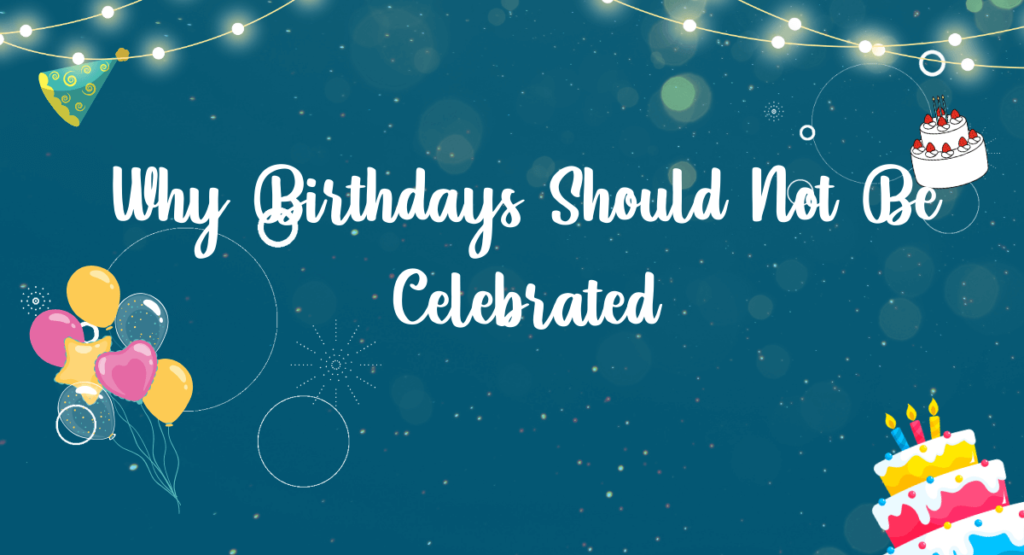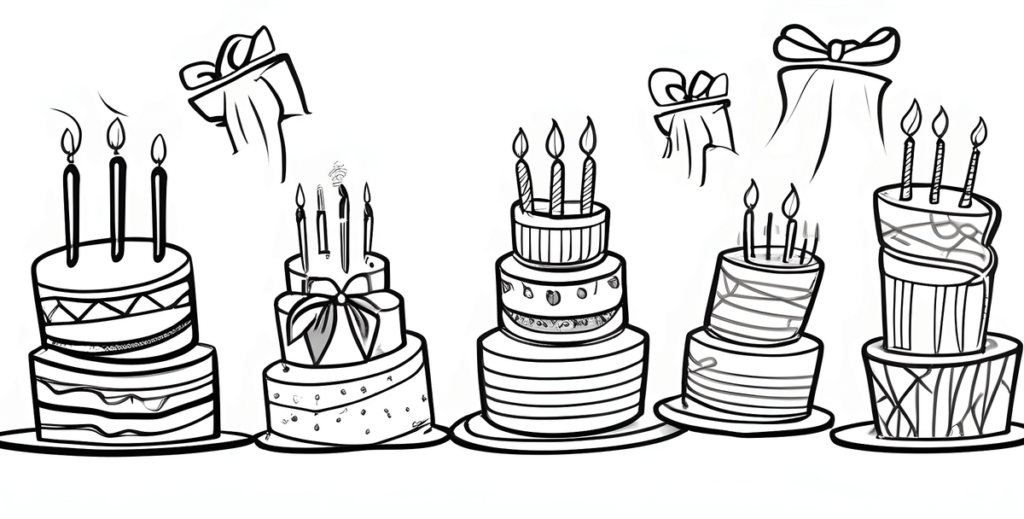Birthdays should not be celebrated as they can create unnecessary pressure and expectations. Focusing on personal growth and accomplishments is more meaningful.
However, many people still enjoy celebrating birthdays as a way to connect with loved ones and create lasting memories. Birthdays have become a popular tradition across cultures, with parties, gifts, and cakes marking the occasion. While some may argue that birthdays are a time for reflection and gratitude, others believe that the emphasis on age and societal norms detracts from true happiness and fulfillment.
We will explore the reasons why some individuals choose not to celebrate birthdays and how they can find alternative ways to commemorate special milestones in life.
The Origins Of Birthdays
Ancient Cultures
Ancient cultures such as the Egyptians, Greeks, and Romans were among the first to celebrate birthdays. They believed that evil spirits were particularly drawn to individuals on their birthdays. As a result, they would surround the birthday person with friends and family, bringing good cheer and well-wishes to ward off the evil spirits.
Religious Traditions
In many religious traditions, birthdays were not initially celebrated. For example, early Christians viewed birthday celebrations as a pagan custom. It was not until around the fourth century that the Christian church formally embraced the celebration of birthdays, integrating them into the liturgical calendar.
The Commercialization Of Birthdays

The Commercialization of Birthdays: In today’s consumer-driven society, birthdays have become heavily commercialized through aggressive marketing strategies and rampant consumerism. Marketing campaigns target individuals from a young age, pushing the idea that extravagant celebrations are necessary for happiness.
Marketing Strategies
Excessive advertisements bombard consumers with unrealistic expectations, leading to overspending on unnecessary items. Influencers and celebrities promote lavish birthday parties, influencing impressionable audiences. Social media platforms facilitate the pressure to host grand events for validation.
Consumerism
The desire for material possessions drives individuals to indulge in extravagant birthday celebrations. Peer pressure further fuels the need for elaborate parties to showcase social status. Mindless consumption leads to environmental impact and financial strain.
Negative Psychological Effects
Birthdays can have negative psychological effects due to the pressure to meet expectations, increased feelings of insignificance, and comparison to others. It’s important to be aware of these potential impacts and consider alternative ways to celebrate.
Pressure To Perform
Birthday celebrations can create pressure to conform to societal expectations.
- Expectations to organize extravagant events can lead to stress.
- Pressure to meet others’ expectations can impact self-esteem negatively.
- High expectations can cause anxiety and diminish the enjoyment of the day.
Comparison And Envy
Comparing one’s birthday celebration to others can lead to feelings of envy.
- Comparison often results in feelings of inadequacy or dissatisfaction.
- Envy can breed resentment towards others who seem to have better celebrations.
- Social media exacerbates comparison, creating a false sense of reality.
Environmental Impact
Birthdays are often seen as a time for celebration and joy, but the environmental impact of such festivities is often overlooked. Despite the goodwill and happiness associated with birthday parties, there is a significant environmental cost attached to these celebrations. The waste generation and resource consumption associated with birthday parties can harm the environment, making a strong case for re-evaluating how we approach such occasions.
Waste Generation
The sheer amount of waste generated from birthday celebrations is cause for concern. From disposable tableware and decorations to gift wrapping and packaging, birthdays contribute significantly to landfill waste. In addition, plastic balloons, ribbons, and party favors further exacerbate the plastic pollution problem.
Resource Consumption
The extensive resource consumption associated with birthday celebrations cannot be ignored. The production of plastic and paper products, as well as the energy and water usage in the manufacturing process, puts a strain on natural resources. Transportation for delivering supplies and gifts also contributes to carbon emissions and air pollution.
Alternative Ways To Celebrate
Birthdays can still be special and meaningful even without the traditional celebrations we are accustomed to. By exploring alternative ways to celebrate, we can create unique experiences that foster personal growth, connection, and joy. Here are some ideas to inspire you:
Acts Of Kindness
One way to celebrate your birthday is by spreading kindness in your community. Engaging in acts of kindness not only brings happiness to others but also fills your heart with joy and fulfillment. Consider organizing a volunteer event, donating to a charity, or performing random acts of kindness throughout the day. By giving back, you create a lasting impact that extends beyond just one day of celebration.
Creating Meaningful Memories
Instead of material gifts, focus on creating meaningful memories with your loved ones. Plan activities that bring laughter, connection, and shared experiences. This can include a picnic in the park, a hike in nature, or a game night. By focusing on quality time and personal connections, you will create memories that will be cherished for years to come.
Frequently Asked Questions On Why Birthdays Should Not Be Celebrated
Why Do People Not Want To Celebrate Their Birthdays?
Some people feel uncomfortable with the attention or feel that their birthdays remind them of difficult times. Others may not want to celebrate due to personal or cultural reasons. It’s important to respect their choice and find other ways to show them appreciation.
Should We Celebrate Birthday Or Not?
Yes, celebrating birthdays is a way to cherish life’s milestones and connect with loved ones. It promotes happiness and strengthens relationships.
Is It Wrong To Not Celebrate My Birthday?
No, it’s not wrong to not celebrate your birthday. It’s a personal choice based on preference.
What Does The Bible Say About Birthdays?
The Bible does not specifically mention the celebration of birthdays. Some individuals in the Bible, like Pharaoh and Herod, held birthday celebrations, but there is no direct command or prohibition regarding the observance of birthdays in the Christian faith.
Conclusion
In light of the information presented, it’s evident that birthdays hold personal significance. Acknowledging individual perspectives is crucial in ways that allow for understanding and respect. Ultimately, the decision to celebrate or not celebrate birthdays is deeply personal and varies from person to person.
It’s vital to appreciate and honor individual preferences regarding this matter.






